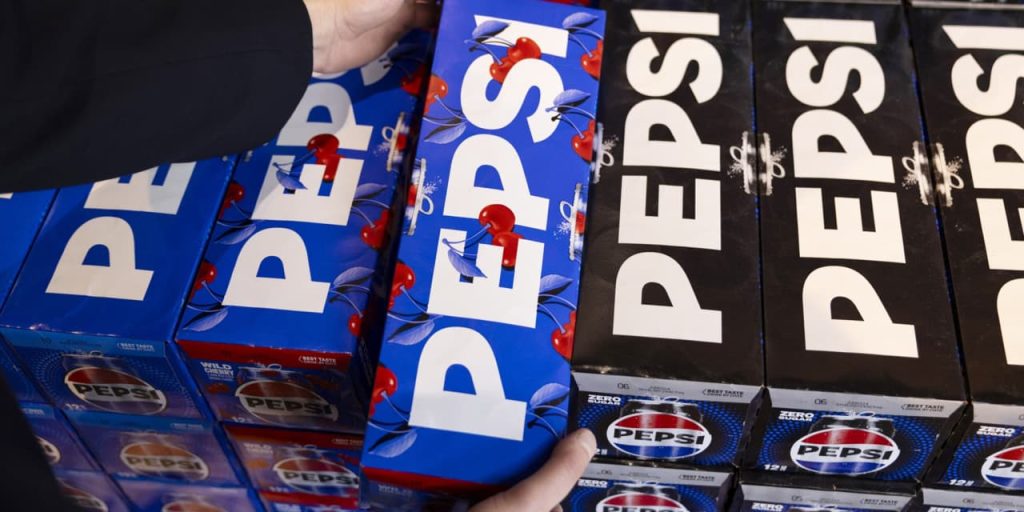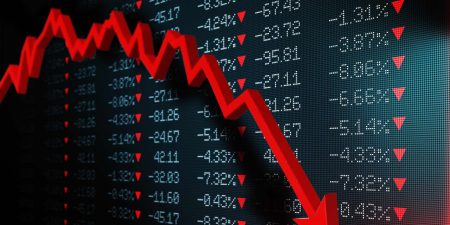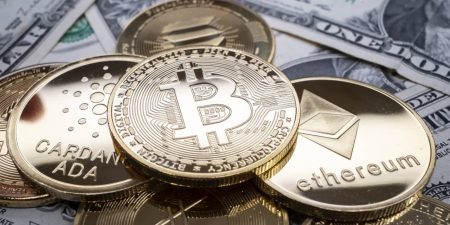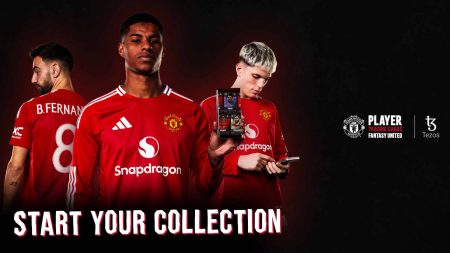People are going out to eat more and snacking at home less. That’s tough for
PepsiCo’s
businesses.
PepsiCo stock fell 3% to $168.72 in Friday trading after the beverages and snack maker reported a surprise drop in quarterly revenue despite better-than-expected earnings.
The Lay’s, Doritos, and, of course, Pepsi owner reported adjusted earnings of $1.78 a share, compared with analysts’ expectations of $1.72. Sales fell 0.5% in the fourth quarter to $27.9 billion. Analysts were expecting a 1.4% increase to $28.4 billion.
North America saw a noticeable drop in sales. PepsiCo’s Frito-Lay business reported a 3% decline in revenue in the region and Quaker Food‘s sales fell by 16% due primarily to a food safety incident that caused product recalls. Sales declined 2% from a year ago in the company’s North American beverage segment.
PepsiCo management said higher prices were a major driver of the slowdown, and that consumers shifted where they were snacking, consuming more outside their homes. That’s a headwind for PepsiCo, whose strong suit is snacks and beverages consumed at home.
The company said it is investing to enhance its presence in away-from-home channels and sees it as an opportunity to grow in coming years.
“We’re getting better at more food experiences: Walking Tacos, Doritos Loaded. We’re testing food trucks, we’re testing many things that will make our brands available to consumers beyond what is a packaged bag or a can or a bottle,” CEO Ramon Laguarta told analysts during the earnings call.
As for consumer health, the company is optimistic. “We feel good about the fact that we think wages will go higher than inflation next year. We hope that by the summer, interest rates will go down and that will create another source of oxygen for disposable income in households,” said Laguarta during the earnings call.
PepsiCo stock has fallen in the past several months. As of Thursday’s close, share prices have fallen 11% since they peaked in May, despite strong headline sales numbers in 2023.
For 2024, PepsiCo expects to deliver 4% organic revenue growth and 8% per-share earnings growth, a slowdown from 2023’s 9% revenue growth. Management had previously expected to hit the upper end of their long-term targets of 4% to 6% annual organic revenue growth.
PepsiCo returned cash to its investors again. The company raised its annual dividend—for the 52nd straight year—to $5.42 a share from $5.06. That is expected to be paid in June. The company also plans to buy back approximately $1 billion worth of shares in 2024.
The stock now has a dividend yield of 3%. While that might not look attractive when the
10-year Treasury yield
trades above 4%, if the Federal Reserve cuts its target rates this year and Treasury yields fall, Pepsi stock could be a stable dividend play.
Like many of its snack and beverage peers, Pepsi has had to carefully navigate how to raise prices in an inflationary environment without losing the customers who buy its popular brands.
For the last three months of 2023, Pepsi’s prices were 9% higher than the year-ago quarter. Before that quarter, the company had raised prices by at least 10% for seven straight quarters.
Pepsi’s price increases far outpace those of its broader category:
Prices for all food at home rose by an average of 1.7% year over year in the last three months of the year, according to the Bureau of Labor Statistics.
For the fourth quarter, Pepsi posted 4.5% organic sales growth across all seven segments, compared with the same period a year earlier. Sales volume, or the unit of products sold, dropped 3% for convenient food, while the beverage segment in North America saw a decline of 6%.
For the long term, investors are also concerned that obesity drugs like Ozempic could reduce consumers’ spending on packaged foods and snacks, denting food companies’ sales. But the drug’s use seems limited so far, and Wall Street analysis suggests the damage to food sales might not be significant.
Nonetheless, food companies have been preparing for a future where people eat healthier. Pepsi has invested in smaller-portion packages, zero-sugar beverages, and convenient foods with lower sodium and low-or-no saturated fat content.
The snack giant purchased Rockstar Energy Beverages in 2020; CytoSport, which makes protein shakes and bars, in 2019; and dried-fruit brand Bare Foods in 2018.
Write to Evie Liu at [email protected]
Read the full article here















